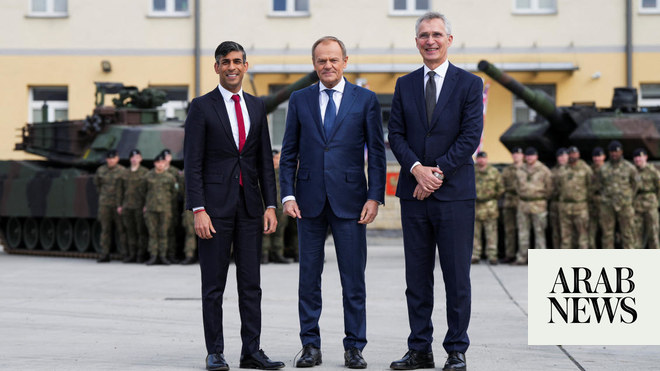
Britain, Japan and Italy signed an international treaty last year to set up the Global Combat Air Programme (GCAP)
FARNBOROUGH, England: Prime Minister Keir Starmer on Monday stressed the importance of Britain’s fighter jet capability, but stopped short of guaranteeing its next generation combat air program with Japan and Italy would not be affected by a defense policy review.
“It’s important for me to put on record just how important a program this is,” Starmer said at the opening day of the Farnborough Airshow on Monday.
Britain, Japan and Italy signed an international treaty last year to set up the Global Combat Air Programme (GCAP) — merging their separate next-generation fighter efforts and aiming for a new aircraft to enter service by 2035.
But there has been speculation that Starmer’s new Labour government might downgrade or scrap the program after it launched a defense review, which will report next year.
Starmer noted the review, but said GCAP, also known as Tempest in Britain, was making “significant progress.”
“It is an important program and I know that people in the room will want to hear me say that,” he said.
“The defense secretary is holding a ministerial level meeting (...) in relation to this because of the significant benefits here in this country.”
Britain’s biggest defense company BAE Systems and aero-engineer Rolls-Royce are working on the multibillion-pound project alongside Italy’s Leonardo and Japan’s Mitsubishi Heavy Industries.
Herman Claesen, BAE’s managing director for the project, said the partners were working “at pace” toward the launch of international design and development next year.
He said progress on the “industrial construct” for developing the platform was good. “We are nearing completion on the activities on that one too in readiness for 2025,” he told reporters.
The program could be opened up to others at a later stage, Italy’s defense minister said in January, with the likes of Saudi Arabia possible contenders to join the project.
Leonardo’s GCAP chief Guglielmo Maviglia said expanding the partnership to Saudi Arabia was matter for the governments involved.
“What we can say is that we are developing a construct that is able and is open for other partners,” he said. “Partners are important because of course the export market is relevant for the business case.”












